#27 Leading with Passion and Purpose
This article was first published in K12 Digest on 23 November 2022.
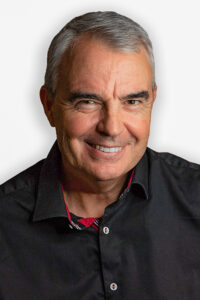 Kai Vacher, Principal, British School Muscat & British School Salalah
Kai Vacher, Principal, British School Muscat & British School Salalah
Kai has devoted his career to teaching, learning, and seeking ways to bring out the very best in his students, colleagues, and the school community.
Following 25 years as a teacher and school leader in the UK state sector, Kai was appointed Principal of British School Muscat in 2011. In 2019, this role was extended to include responsibility for British School Salalah, in the south of Oman, with a commitment to ensuring the same high standards of excellence for its students.
Kai is an elected member of the COBIS Board of Directors and Country Representative for BSME. In June 2021, he was made a High-Performance Learning Fellow, recognising the contribution made to education leadership in a global context. He was honoured to be recognised as one of the Top 10 international education influencers of 2021 by ISC Research in January 2022.
In an exclusive interview with K12 Digest, Kai Vacher reveals the emerging trends in education in the post-pandemic era, personal leadership philosophy, pearls of wisdom for aspiring educators, and a lot more. Following are the excerpts from the interview.
What are the new trends in the education sector that have emerged since the pandemic? Is it for the benefit of the students?
Remote & blended learning expansion
It has been exciting to see how the use of technology during the pandemic is continuing, not just to create opportunities for students within schools, but is also allowing us to reach students in remote areas of the world more easily. As schools build on their range of online and blended learning programmes, more quality education opportunities for young people, particularly in remote and hard to reach geographies, are becoming available. British School Muscat and British School Salalah’s FlexEd initiative in Oman is one such example which we hope will be emulated by schools in other areas of the world to help more students.
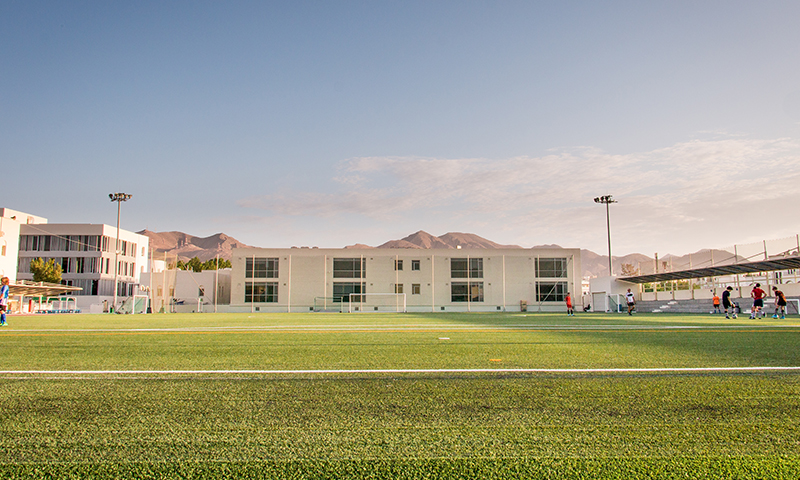
British School Muscat, Oman
The wellbeing and mental health of many students suffered during the lockdown periods of the pandemic.
Whilst the academic learning loss of many students during the pandemic is being addressed successfully by schools, the psychological impact of extended periods of lockdown on students’ mental health and wellbeing may continue to present a challenge for schools to manage for the next decade or so. As ever, schools are responding creatively by, for example, reviewing their safeguarding, child protection, pastoral and personal health and wellbeing programmes. Schools are also looking at innovative ways to engage parents to enable them to better support their children.
Establishing coaching cultures in schools is just one of the creative responses to help support student and staff wellbeing and professional growth. A coaching culture within a school will mean even better learning experiences for young people.
As more schools review their approach to diversity, equity, inclusion and belonging, I am optimistic that they will be asking fundamental questions such as: “Are you motivating every single person who you directly and indirectly influence through your leadership?” and “Are you allowing each of them to be their best selves?” This question applies equally to students and colleagues. Asking this question should lead to significant improvements in how young people feel respected, valued and included in their school community.
With your experience in education, how would you describe the merging of technology and education? Is there a dividing line between traditional and modern pedagogies in school education?
Despite the presence of computers in schools for the last 30 years or so we are still in the early stages of exploring how digital technology can support learning – schools still have to manage too many digital headaches that get in the way of unleashing the potential of digital technology to support learning more fully.
In our vision for digital education, we should also be clear where traditional educational methods are not enhanced, or not enhanced significantly, by technology – for example the development of oracy and performance skills through music, art, drama, and dance can and should happen without students having to use digital technology. Furthermore, the development of the hard skills of teamwork, collaboration, leadership, resilience, and perseverance through outdoor and residential education take place ideally in the absence of devices such as phones and laptops.

Duke of Edinburgh’s International Award, Bronze Trek
Take us through the foundation journey of British School Muscat, its vision and mission.
British School Muscat was founded by His Majesty Sultan Qabos bin Said, granting a Royal Charter to the school in 1973 to support the economic and social development of the Sultanate. At the same time His Majesty gifted the School the plot of land where the school is located today. His Majesty invited the founder companies, who required a British international education for their employees’ children, to form the Board of Governors and invest in the initial school buildings.
Our vision is to provide world class education where everyone feels valued, respected, and is inspired to learn. Our mission is to grow students who are best for the world.
Brief us about FlexEd. How can FlexEd combine in-school face-to-face learning with online school-based teaching and independent study while remaining affordable to parents.
British School Muscat (BSM) is one of the leading British schools in the Middle East. BSM is based in Oman’s capital, Muscat, with 960 students aged 3-18. On the other hand, British School Salalah (BSS) has just 240 students and is more than 1,000 kilometres away in Salalah, on the remote, southern coast of Oman.
Prior to 2020, BSS had only offered an education up to Year 9 (age 14). In November 2019 our BSS parents asked us to find a solution that would support the seven children, who were at that time in Year 9, to study for their GCSEs in Salalah. The parents were very clear that the learning had to take place in school, not at home.
Together, British School Salalah and British School Muscat created FlexEd: a successful, low cost, blended learning programme for students aged 14-19. FlexEd allows the small number of students at BSS to access a world-class senior school education, from a remote corner of Oman, at an affordable price point. This is done with a mix of face-to-face learning, online learning with BSM teachers in Muscat and independent study, in school 5 days a week, using digital technology.
FlexEd allows a small school to employ far fewer teachers on site, enables students to continue their upper school education (age 14 to 18) and to access a quality education at the same cost as the students in the earlier years of secondary education.
The design principles of FlexEd could be adapted to suit the needs of any school exploring an education provision for a few students in a remote location, or where a school is finding recruitment of specialist teachers challenging.
FlexEd has gained national and international recognition for its innovative approach to educational provision.
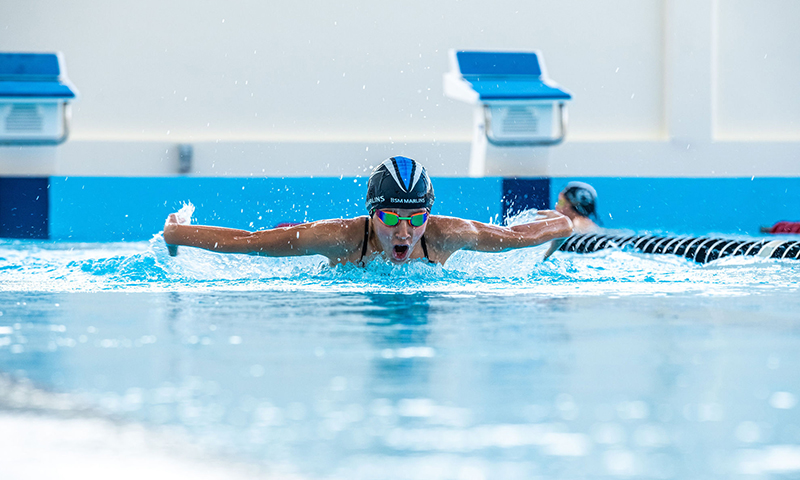
Throw some light on your recent educational approaches. What sets your school’s teaching and learning methods apart from those of its peers?
All our teaching and learning at British School Muscat and British School Salalah is underpinned by our High-Performance Learning ethos.
We firmly believe that “All of us do not have equal talent but all of us should have an equal opportunity to develop our talent.”
This #EveryoneCan philosophy shapes our provision and means that we are aiming to push the boundaries of student achievement, student leadership and curriculum innovation.
Consequently, every day, our children enjoy a wide range of creative, innovative, and stimulating learning activities that engage our students at the highest levels. Wherever possible we draw on Oman’s inspiring deserts, wadis, mountains, coastline, history and culture to enrich our students’ learning. In the warm winter months students can be frequently found learning in this wonderful range of learning environments.
We are currently capturing the joy of student learning in some short films based around our #EveryoneCan philosophy. We will be sharing these inspiring films with the global education community early in 2023.
Tell us about the various methods and tools you employ to assist students in strategically positioning themselves for careers throughout their educational journeys.
British School Muscat provides various opportunities for our students to prepare for life outside of education. We support and encourage our students to investigate career opportunities in our PSHE lessons, during our careers fair and careers week. In addition, we use Unifrog software for our students to research global careers and higher education. Our students are taught to follow their interests and skill sets, which is complemented by our High-Performance Learning ethos and our mission to create metacognitive learners.
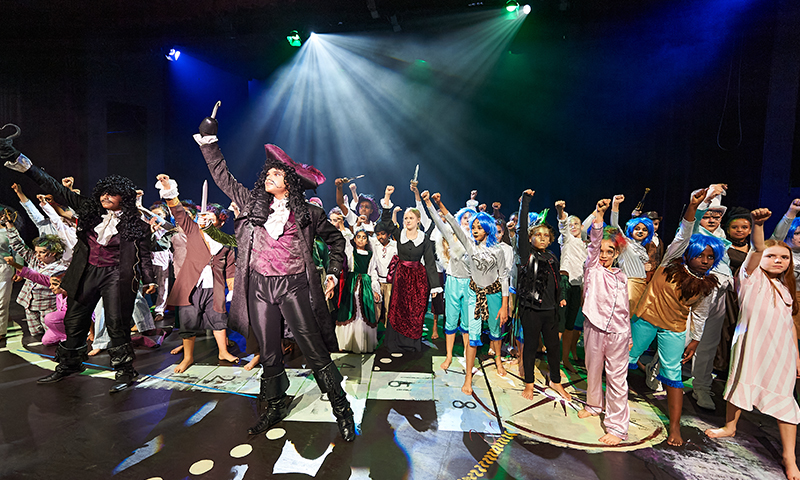
What are the major initiatives you are implementing to train your newly qualified teachers?
Our talent management strategy to ‘grow our own’ teacher trainees utilises Straight to Teaching and Assessment only routes to QTS. This, combined with our ‘Learning Talk’ coaching culture, provides support to teacher trainees and early career teachers.
As a BSO school, we offer a core induction process, delivering the Early Career Framework using DfE approved professional development materials; we promote opportunities to network with other early career teachers, both across the school and within international school communities.
Each ECT is assigned a mentor who supports them through their first two years. They also teach a reduced timetable and have opportunities to explore the wadis, deserts and mountains of Oman through participating in our International Award DofE programme.
What are some valuable lessons that you learnt through your prior experience that assist you in driving growth for British School Muscat? What is your leadership philosophy?
In my previous role as Director of Innovation, for London based school improvement organisation SSAT, I learned that visiting schools with a sharp learning focus can be fantastic professional learning. Consequently, I am always seeking to create such learning opportunities for myself and my colleagues through school visits, inviting educators to our school or working with teachers and leaders in other schools locally, regionally, and globally on common areas for development. I also believe that schools can learn a great deal from other sectors. So, I am constantly reading and listening to leading thinkers from the business world as well as keeping up to date with the latest thinking and research in the education sector.
I think it’s important to build teams and a culture where we believe in each other, support each other at all times and ensure that everyone feels they have a voice and that they feel valued. Creating a coaching culture within school is a practical way of leaning into this philosophy.
We need to embrace with compassion, empathy, and courage the following truths:
- change is the only constant, and the goalposts keep moving
- there are no guarantees
- life is not fair.
My leadership philosophy can be summed up by using our school philosophy once again: “All of us do not have equal talent but all of us should have an equal opportunity to develop our talent.”
In a world that is constantly changing, how do you keep up with the periodic technological and industry changes? Brief us about the various accreditations, awards, and accolades that British School Muscat has won in the recent past?
We are active members of several organisations, including HMC, BSME, HPL and COBIS, and attend their conferences, are part of their forums and make the most of the opportunities they provide for us to interact with fellow schools and industry professionals to keep up with and share the latest ideas.
This year we were selected as finalists in the Independent Schools of the Year 2022 Awards, in the British International School of the Year category for our FlexEd initiative. Earlier this year we were shortlisted in the International School Awards, by ISC Research, also for FlexEd.
In the past few years British School Muscat has won many awards, most notably we were voted ‘British International School of the Year 2019’ in the International School Awards (by ISC Research) for our internship programme and in 2018, and International School of the Year in 2019 for our Learning Ethos.
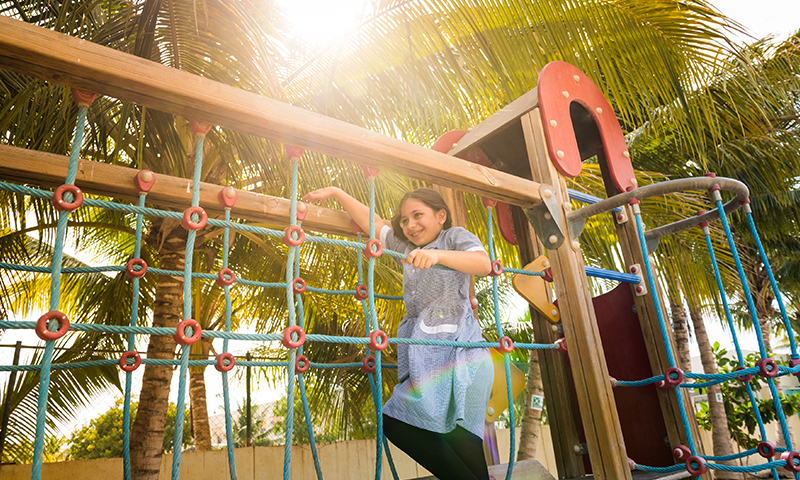
What have been some of the most major moments in your professional career? What has been the catalyst for your success as principal of British School Muscat?
Teaching my first lesson is undoubtedly the most important moment in my professional career. Fast forward more than 25 years and I have been proud that my career in teaching has given me the opportunities to achieve and be proud of many different things.
Since moving to Oman in 2011, I have been privileged to see the growth of British School Muscat and British School Salalah from quiet regional schools to leading international schools. Part of this growth has been through the development of the school sites, to provide world leading facilities, but the most important part has been working with talented colleagues, building a high performing team and always striving to get even better and provide an inspiring educational experience for all our students.
What advice would you give to budding educators?
My five pieces of advice to a budding educator would be as follows:
- Aspire to Jim Collins Level 5 leadership traits of personal humility and intense professional will.
- Learn to lead as a coach.
- Keep an open mind and keep learning
- Look after your mental and physical wellbeing, ensure you have balance in your life, sleep well, exercise regularly and eat wisely.
- Seize opportunities, however challenging they may seem, if they present an opportunity to make a difference to young people and provide the conditions for professional growth.
What projects or goals are you working on or leading currently?
Alongside establishing a coaching culture, working with school leaders globally to solve our digital headaches, and continuing to improve the facilities on both our school sites, I am working with the High-Performance Learning Team to deliver the World Class Middle Leader Programme which covers two main areas: a. high performance leadership and b. leading inquiry driven innovation. Leading lasting and meaningful change is hard. I anticipate that this programme will support more educators to lean into change and redesign education with a high degree of confidence, success, and joy.